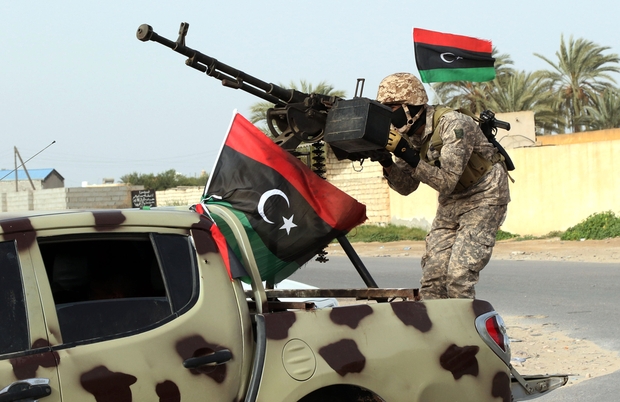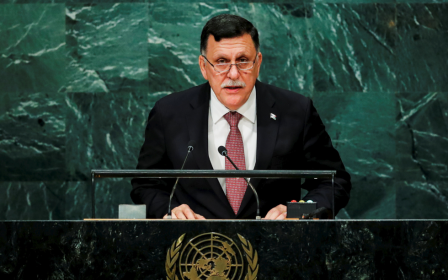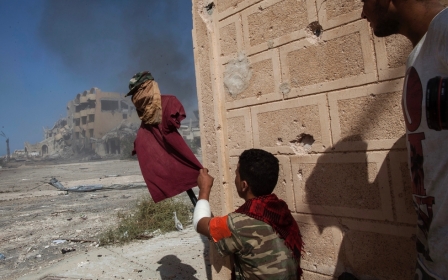EU extends sanctions against head of Libyan parliament, 2 others

The European Union extended by six months sanctions it had imposed against the head of Libya's internationally recognised parliament, as well as two former officials, for blocking peace efforts by failing to get behind the UN-backed unity government.
Libya has had rival administrations since mid-2014, when a militia alliance took over Tripoli, setting up its own authority and forcing the recognised parliament to flee to the remote east.
In a blow to the Government of National Accord (GNA), which is supported by the United Nations and Western powers, the parliament headed by Aguila Saleh gave it a no-confidence vote in August.
The US Treasury Department also imposed sanctions on Saleh in May, accusing him of "stalling political progress in Libya".
A Treasury Department statement said Saleh had repeatedly blocked efforts in parliament to support a political transition.
The other two ex-officials facing a new EU round of sanctions are Khalifa Ghweil and Nuri Abu Sahmein, both former top figures in an unrecognised authority that has since ceased to function.
The sanctions, which have been in place since April and were rolled over on Friday to April 2017, ban travel in the EU for the three men and slap a freeze on any of their assets in the EU.
The European Council, which groups the 28 EU leaders under former Polish premier Donald Tusk, said in a statement it "remains concerned by the situation in Libya and in particular the acts that threaten peace, security and stability of the country".
Libya is facing "political impasse" and "hazardous military developments," the UN envoy to the North African country, Martin Kobler, warned on Tuesday, highlighting the impact of violence on civilians.
The nation has been ravaged by unrest since the fall and death in 2011 of dictator Muammar Gaddafi, and has also seen the Islamic State group establish a foothold.
Libya has Africa's largest oil reserves, estimated at 48bn barrels, but production and exports have slumped dramatically in the years of crisis.
France will host an international meeting on Libya next week, featuring several countries in the region, including Egypt and Gulf states.
The aim is "to see how we can advance the cause of achieving the necessary unity in Libya," French government spokesman Stephane Le Foll said on Wednesday.
New MEE newsletter: Jerusalem Dispatch
Sign up to get the latest insights and analysis on Israel-Palestine, alongside Turkey Unpacked and other MEE newsletters
Middle East Eye delivers independent and unrivalled coverage and analysis of the Middle East, North Africa and beyond. To learn more about republishing this content and the associated fees, please fill out this form. More about MEE can be found here.



